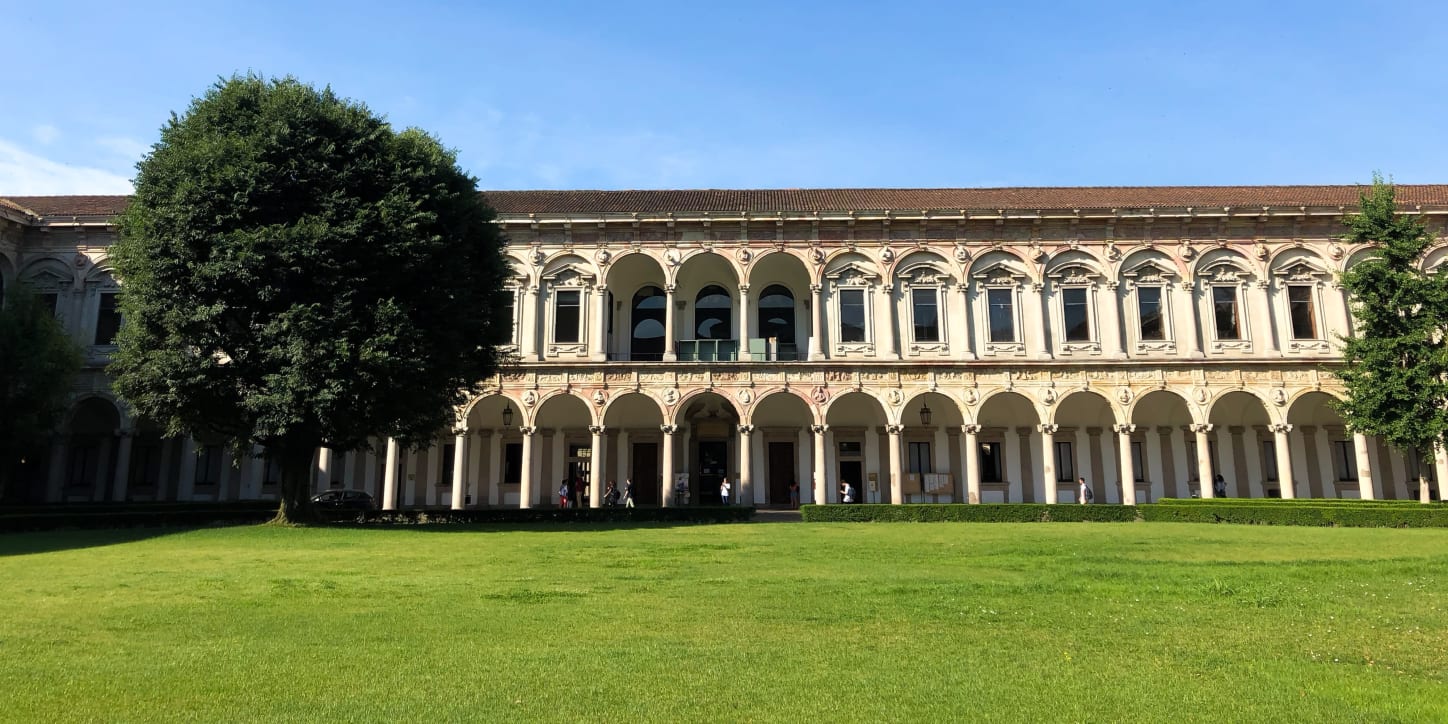
Master's Degree in Global Environment and Development
DURATION
2 Years
LANGUAGES
English
PACE
Full time
APPLICATION DEADLINE
Request application deadline
EARLIEST START DATE
Oct 2024
TUITION FEES
Request tuition fees

STUDY FORMAT
On-Campus
Introduction
This programme, entirely delivered in English, is an Erasmus Mundus Joint Master. While the first year is taught at the University of Copenhagen, two curricula are then provided: Agricultural Development (at the University of Milan) and Sustainable Environmental Development (at the University of Warsaw). The course aims to create globally competitive graduates who can identify critical aspects of sustainable natural resource management for economic, environmental, institutional, and societal development and develop sustainable, appropriate, and feasible solutions.
The course aims to create globally competitive graduates who can identify critical aspects of sustainable natural resource management for economic, environmental, institutional, and societal development in both the global south and the global north and develop sustainable, appropriate, and feasible solutions. The program will educate high-quality digitally competent graduates to become professionals in private and public companies, I/NGOs, government bodies, and research institutions. Through interdisciplinary and disciplinary, multicultural real-life experiences and laboratory experiments, students will learn to identify, analyse, understand, and forecast complex systems. MERGES provides two curricula: in Agricultural Development (at the University of Milano) and in Sustainable Environmental Development (at the University of Warsaw).
The MERGED graduate with a specialization in Agricultural Development is an innovative professional figure, equipped with a solid technical-scientific culture, a broad multidisciplinary vision of the environmental and agricultural system and a high operational preparation to manage economic and productive activities related to agriculture and natural resources in a global framework and long-term sustainability. The figure can operate in international contexts, both in the North and in the South of the world.
Gallery
Admissions
Curriculum
Year: 1
Optional
- Entrepreneurship and Innovation
First semester
Compulsory
- Global Challenges in Environment and Development
- Quantitative and Qualitative Methods in Environment and Development
Optional
- Advanced Crop Production
- Agroforestry
- Applied Insect Ecology and Biological Control
- Applied Statistics
- Climate Change and Land Use
- Climate Management in Plant Production and Research
- Plant Nutrition and Soil Fertility
- Tropical Crop Production
Second semester
Compulsory
- Practicing Interdisciplinarity: Field Research On the Environment
Optional
- Agricultural Value Chains in Developing Countries
- Environmental Impact Assessment
- Global Environmental Governance
- Land Use and Environmental Modelling
- Plant Ecophysiology in a Changing Climate
- Plant Genome Editing and Selection
- Tropical Forest Restoration
Year: 2
First semester
Compulsory
- Laboratory in Sustainability of Agricultural Mechanization
- Laboratory in Sustainability of Livestock Systems
- Laboratory in Sustainability of Water Management
Optional
- Agricultural Systems and Soil Science
- Bioeconomy: Management, Assessment and Intellectual Property
- Natural Resource Economics
Second semester
Optional
- Environmental Plant Biotechnology
- International Cooperation and Crop-Livestock Systems
- Land Planning and Life Cycle Assessment
- Plants as Biofactories
- Statistical Methods for the Environmental Research
Open sessions
There are no specific sessions for these activities (e.g. open online courses).
Compulsory
- Practical/experimental Internship
- Optional
- Additional Internship
- Additional Language Skills: Italian
- Merged Intra-Semester Workshop
Conclusive activities
There are no specific sessions for these activities (e.g. open online courses).
Compulsory
- Final Exam
Program Tuition Fee
Career Opportunities
Expert, manager and consultant of policies and rural and environmental development in private companies, public administration and public bodies with international interests, and international organizations (governmental and non-governmental) in the agro-food sector.
In the private sector, the graduate can take on the organization, evaluation and management of the interaction between agri-environmental activities and systems.
In the public sector, the graduate supports administrations on environmental and territorial policies, especially on issues related to sustainable husbandry and agricultural engineering. The international bodies are a preferred career opportunity provider.
MERGED graduates can disseminate, within institutions, the principles of environmental sustainability, promote a culture oriented towards safety and the protection of the agricultural environment, and also through the awareness of public opinion.
Skills associated with the function
Those who complete the MERGED study path are able to carry out analyses, evaluations and monitoring of natural, territorial and environmental resources, carrying out environmental impact studies with tools deriving from social sciences, economics, law, agricultural business management and environmental planning. These tools are made available through the first-year interdisciplinary courses. The skills allow me to operate in interdisciplinary and diversified contexts (such as those outlined by the European Green Deal and similar policies) and/or continue my studies with further masters and courses. Those who complete MERGED can contribute to implementing and certifying environmental management systems in rural areas; carrying out interventions on the production of goods and services to improve environmental quality; planning and implementing interventions for the prevention of environmental risks, and increasing safety, especially in agriculture.
The professional trained by MERGED has a holistic vision and can synthesize complex ideas and concepts deriving from the analysis of the agricultural reality at a global level.
Employment opportunities
The skills acquired allow me to work in companies and organizations that operate - even globally - in the green economy and bioeconomy; in professional studies dealing with territorial analyses, agricultural environmental impact assessment, and resource management in rural environments. Those who complete the MERGED study cycle find employment in the public administration and in local public bodies; in supranational organizations; in universities or research institutes (in Italy, such as CNR, ENEA, CREA, State Technical Services, National and Regional Agencies and Bodies for the Environment and the Territory, Parks and Protected Areas, Watershed Authority, Technical Services and Regional, Provincial and Municipal Departments, Land Reclamation and Irrigation Consortia, Mountain Communities and Mountain Watershed Consortia). Furthermore, they can work at NGOs globally, where they are able to understand and design the development of agricultural systems even under conditions of climate change.
The master's degrees of the LM-69 class allow one to obtain the qualification for the profession of doctor of agronomy which can be accessed after a qualifying exam.
